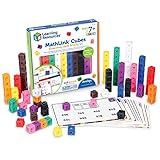
Stay Ahead of the Curve with an Elementary Math Intervention Program
Equip your child or student with the tools to minimize their resistance against learning math and have them start to approach this subject feeling confident and prepared.
Address Math Challenges Before Small Problems Become Big Problems
When to Seek Math Help for Your Grade-Schooler
 The signs of struggle with math are usually quite clear. Boredom, frustration, crying fits and anger are all signs that your child is perhaps having more trouble than they can handle with math. It’s also true that even when they’re not acting out or saying that they’re bored, they can still be feeling very stressed by the prospect of never being able to fully grasp the math concepts they are learning. In both the former and the latter cases, an elementary math intervention program can serve as a buffer between the learning process and the child having increasingly frustrated melt-downs. With intervention programs, it’s really a matter of heading off math problems at the pass by equipping the student with tools to minimize their resistance and have them start to approach math feeling confident and prepared.
The signs of struggle with math are usually quite clear. Boredom, frustration, crying fits and anger are all signs that your child is perhaps having more trouble than they can handle with math. It’s also true that even when they’re not acting out or saying that they’re bored, they can still be feeling very stressed by the prospect of never being able to fully grasp the math concepts they are learning. In both the former and the latter cases, an elementary math intervention program can serve as a buffer between the learning process and the child having increasingly frustrated melt-downs. With intervention programs, it’s really a matter of heading off math problems at the pass by equipping the student with tools to minimize their resistance and have them start to approach math feeling confident and prepared.
How is An Elementary Math Intervention Program Different Than What They Learn in School?
A good way to view the difference between an extracurricular math intervention program and the school curriculum is to think of what the child learns in school as the foundation and the math intervention program as the building blocks. Of course, it’s important that your child learn core math concepts and there’s really no way around the repetition and rote memorization in the beginning. Once the basic principles have begun to make sense, however, children can benefit greatly by immediately having ways to build upon their newly acquired knowledge. The most challenging concepts can become much less so when they are placed in real-world applications. A math intervention program can provide those applications and help guide the child effortlessly to a much less stressful mastery of the concepts.
The Six Guiding Principles of Teaching Elementary Mathematics
How Long Will An Elementary Math Intervention Program Be Necessary?
 It’s important to remember that children’s individual abilities will differ when it comes to learning math. Some children might begin to feel that they have an affinity for math and they’ll become eager and willing to learn to math skills and solve problems on their own. This type of independence should be encouraged and celebrated, but be aware that their initial enthusiasm may change over time and children may again request help even though it seemed they had fully grasped a particular math principle.
It’s important to remember that children’s individual abilities will differ when it comes to learning math. Some children might begin to feel that they have an affinity for math and they’ll become eager and willing to learn to math skills and solve problems on their own. This type of independence should be encouraged and celebrated, but be aware that their initial enthusiasm may change over time and children may again request help even though it seemed they had fully grasped a particular math principle.
On the other hand, some kids may always feel like they need the assistance and safety net of extra-curricular programs when learning math. Wherever your child falls on the math spectrum, the best you can do is to stay very attentive to the signals that they give you and listen to their concerns about their math learning experience. Once they know unequivocally that they have support and understanding about their individual ability, they will be more likely to respond well and excel in a math intervention program.
How Do I Reinforce What My Child Learns in An Elementary Math Intervention Program?
As with most aspects parenting small children, the best reinforcement is attention and interest. When children are introduced to a math intervention program, they can become very concerned and afraid that they are not doing things “right”. They may feel singled out or that there’s something wrong with them for not being able get a handle on what’s going on in their regular class. These feelings may initially impede the child’s progress in the intervention program, so it’s extremely important to let them know how proud you are of them at each stage of development, regardless of how small.
Praising your child, listening to their concerns, participating in the lessons and referencing them even when they’re outside of class time are all ways to reinforce what they are learning in their math program. With your dedicated support, they begin to feel that they have partners in the learning journey instead of adults and teachers who feel disappointed in them.
Image Credit: FreeDigitalPhotos.net / FreeDigitalPhotos.net
Why Is Basic Math Is So Important?
Shopping for Math Activities
You might also like
Buttons from the Rag Bag! Button Jar Math ActivitiesSave the buttons from discarded clothing and recycle them as fun, hands-on ma...
Kumon Math ReviewA mother's review of the Kumon Math program including suggestions for kumon a...






 Visual Learning Strategies: What to Look For in Math Learning Platformson 04/20/2012
Visual Learning Strategies: What to Look For in Math Learning Platformson 04/20/2012
 Blended Learning in the Elementary School Classroomon 04/18/2012
Blended Learning in the Elementary School Classroomon 04/18/2012
 Graphic Design Programs: Five Things You Didn't Knowon 03/27/2012
Graphic Design Programs: Five Things You Didn't Knowon 03/27/2012
 The Best-Kept Secrets of College Education: Community Colleges to Financial Aidon 03/27/2012
The Best-Kept Secrets of College Education: Community Colleges to Financial Aidon 03/27/2012



Comments: Let Us Know What You Think!